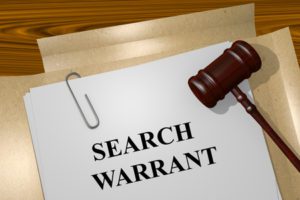 The Court continued in relevant part: Defendants filed a motion to suppress evidence seized “without a warrant.” In response, the State challenged that framing of the issue and relied on the search warrant to validate the initial stop. The trial court held a conference with defense counsel and the State. The parties engaged in substantial argument regarding the manner in which the motion should proceed and which party would have the burden at each phase. The court noted the existence of “warrantless aspects” to the suppression motion. Based on the conference, the trial court issued an updated scheduling order and directed the State to establish the legality of the “warrantless aspects” of the motion— namely, the initial motor vehicle stop. Defendants would bear the burden on any challenges to the validity of the subsequent search warrant.
The Court continued in relevant part: Defendants filed a motion to suppress evidence seized “without a warrant.” In response, the State challenged that framing of the issue and relied on the search warrant to validate the initial stop. The trial court held a conference with defense counsel and the State. The parties engaged in substantial argument regarding the manner in which the motion should proceed and which party would have the burden at each phase. The court noted the existence of “warrantless aspects” to the suppression motion. Based on the conference, the trial court issued an updated scheduling order and directed the State to establish the legality of the “warrantless aspects” of the motion— namely, the initial motor vehicle stop. Defendants would bear the burden on any challenges to the validity of the subsequent search warrant.
On the day of the suppression hearing, instead of presenting proofs to establish the legality of the stop, the State again requested that the court shift the entire burden to the defense. The trial court ordered the proceeding to begin with the State having the initial burden of proof. The State announced that it would not go forward with evidential proceedings. The court admonished the State and ordered that it begin with the presentation of testimony. The State called no witnesses. Finding that the State had failed to meet its burden, the court granted defendants’ motion to suppress. The court suppressed all evidence seized—including the evidence seized pursuant to the search warrant under the “fruit of the poisonous tree” doctrine.
The State filed a motion for leave to appeal to the Appellate Division, which promptly denied that motion. The Court granted the State leave to appeal. 229 N.J. 255 (2017).
This sort of obstinate behavior by prosecutors is more common than people think. They are aware that very few judges will charge them with contempt in situations in which a private attorney would be charged. This is due in large part to the political power that is wielded by prosecutors’ offices.
